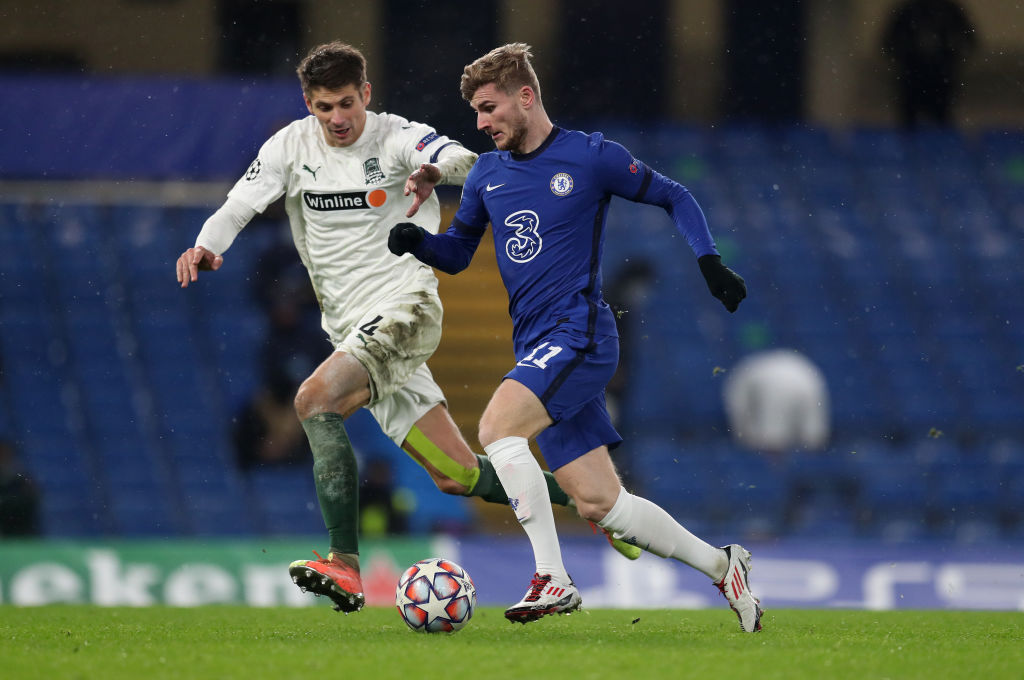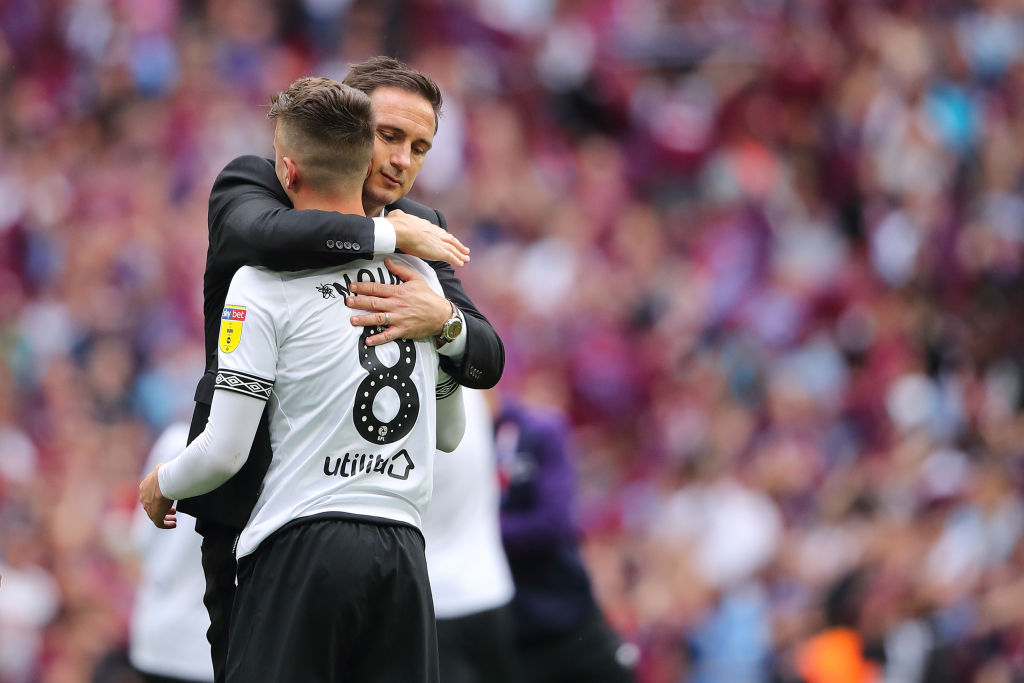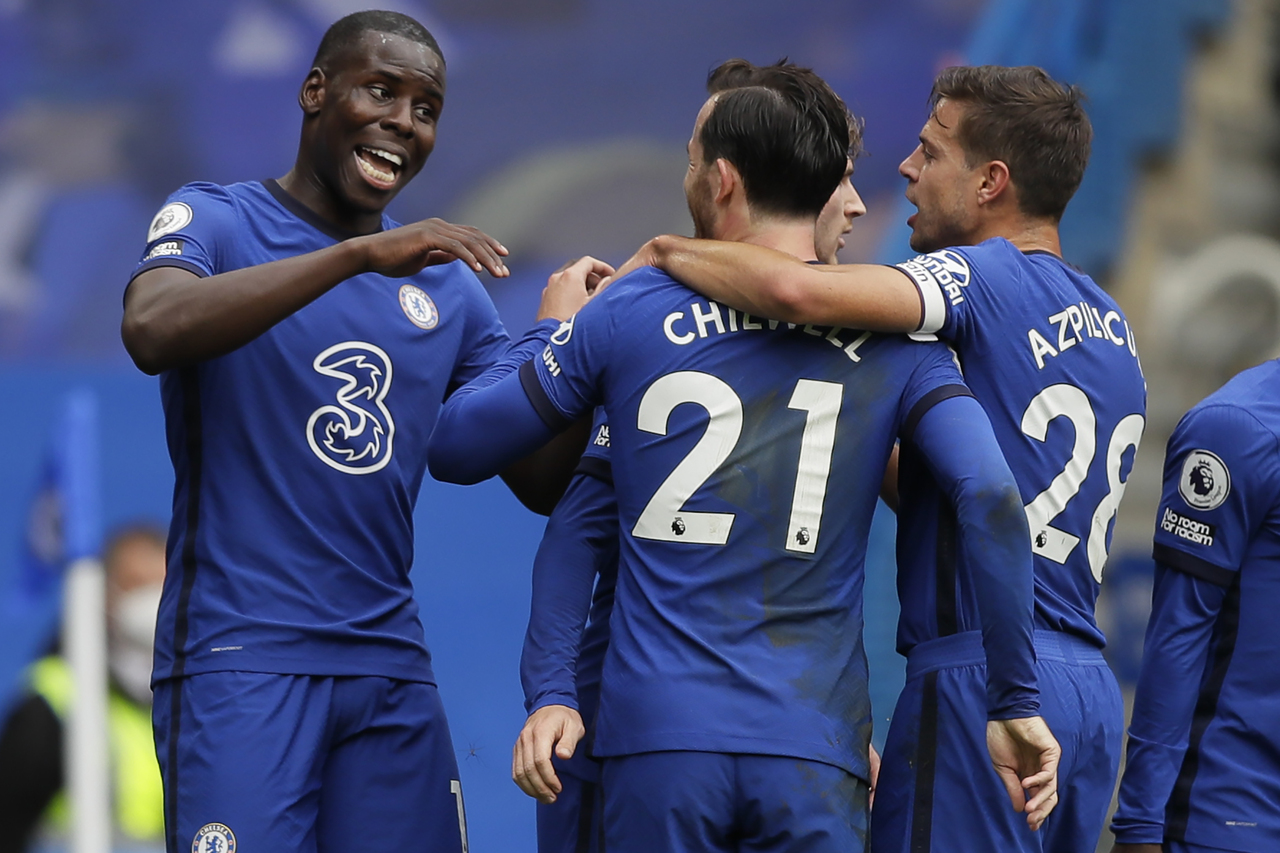 25/04 - 20:00
25/04 - 20:00

Chelsea have won three of their last ten Premier League matches; that is a run that would, more or less, rule anyone out of mounting a serious title challenge.
Admittedly this season could be different but, regardless of the peculiarity of a season bound for an asterisk in the ‘history books’, it is a really poor run of form.
The Blues' current blip is even worse when it follows a pre-season in which the club spent over £200 million on incoming transfers, Manchester City the only other Premier League team to spend over £100 million.

Despite that business, the Chelsea squad still has its issues. It appears to have been constructed poorly and currently lacks any sign of a cohesive pre-determined recruitment plan. Having said that; most clubs have issues and flaws – it is the role of the manager to either fix them, or at least paper over the cracks until he can.
The manager, or head coach, is tasked with the ability of making sure the raw material and talent at his disposal is moulded into something that achieves results. Ideally, those results will be the outcome of a sustainable style and process so that if components of that team start to fail, or the overall results begin to dip, there is a reservoir of trust in the bank.
A rich man's Rowett?
At both of Lampard’s clubs to date, Derby County and Chelsea, that aforementioned tactical identity and ‘plan’ has been minimal to the point of being non-existent.
Under Lampard's predecessor Gary Rowett, Derby finished sixth in the 2017-18 season. They clocked up 75 points, with 20 wins, and scored 70 goals whilst conceding just 48. When Lampard suceeded Rowett, Derby finished sixth in the 2018-19 season: finishing on 74 points, with 20 wins, and scored 69 whilst conceding 54.
Gary Rowett was repeatedly criticised for his style being overly-defensive and cautious. Football sites ran polls asking if Derby fans were unimpressed with the style of play, while Rowett had to defend himself in the local press. Lampard, meanwhile, won praise football’s journalistic royalty due to his “mindset” and being a “winner”. Lampard also garnered plaudits for his tactics, the media often citing his use of a supposedly high-press and attacking full-backs, even though Rowett’s side scored more and conceded less.

Underlying data such as xG (expected goals) and xGA (expected goals against) is very useful when looking over the course of a season. For example, in the season Lampard’s Derby finished 6th, the top three teams were all expected to finish in the top three – just in a different order. They were Norwich, Sheffield United and Leeds. Lampard’s Derby, though, had an xPOS (expected position) of 13th. This was the second biggest over-performance, according to this data, of anyone in the Championship.
It is fair to say, using this, that Derby were very fortunate to get into the play-offs. In contrast, under Rowett the previous season, Derby slightly over-performed but only by two points; nine less than Lampard’s 11.
It is also important to remember the personnel from Lampard’s time in charge. The loan signings of Mason Mount, Harry Wilson and Fikayo Tomori complemented senior players such as Ashley Cole, Tom Huddlestone and Richard Keogh and the additional signings of Jack Marriott and Florian Jozefzoon helped Derby assemble a really talented squad.
It is reasonable to say Lampard significantly under-performed at Derby, and was bailed out at key stages of the season by his side's individual quality. It also reasonable to say he is under-performing at Chelsea.
Mass rotation breeds mass confusion
A key reason behind his travails at Chelsea is the apparent lack of a consistent tactical identity and plan, as mentioned previously.
The system changed regularly in his first season at Chelsea. Across the season, in-game decisions included, Chelsea played five different formations including in-game switches from a 4-3-3 to a 3-4-2-1 to a 4-4-2 in a single half of football.
Such flexibility can be a really positive thing and that must be acknowledged. An ability to play several different formations and coach the players you have to be adaptable in-game or pre-game is something that has been very common in most areas of Europe; Austria, Switzerland, Germany and Italy have all been producing tactically flexible coaches for decades.
If your style of play is sufficiently engrained into the players then their movements and patterns should be of a requisite standard to mean the system itself almost doesn’t matter – almost. Adopting this flexible coaching model is something Lampard should be praised and, in a way, celebrated for.
However, whether by design or desperation, these tweaks in formation can lead to a lack of clarity in the game plan and also leave players simply confused as to their role – both at the club and on the pitch.

His heavy rotation, throughout his tenure, but especially in this second season, has also left senior players from his first season discarded, unwanted or unhappy.
The 11 players most commonly used by Lampard during his first season were: Kepa, Alonso, Zouma, Rudiger, Azpilicueta, Kovacic, Jorginho, Loftus-Cheek, Pulisic, Giroud, Willian. Of those 11, only Kurt Zouma has been a regular favourite or someone who hasn’t been consistently left out of the squad, publicly criticised or almost sold due. Just one.
Establishing hierarchy
A hierarchy of players is one of the most underrated aspects of management and squad construction. In the summer of 2017 when Manchester City brought in Bernardo Silva to complement their attacking riches of Raheem Sterling, Leroy Sane, Gabriel Jesus, Sergio Aguero, Phil Foden, Kevin De Bruyne, David Silva and Brahim Diaz; it seemed too much. However, Guardiola’s rotation and hierarchy allowed for it to work very easily with lots of minutes for each player even though City's best XI was obvious.
Chelsea’s summer of 2020 saw a similar spree with Kai Havertz, Hakim Ziyech and Timo Werner brought in to go alongside Tammy Abraham, Olivier Giroud, Callum Hudson-Odoi, Christian Pulisic, Mason Mount, Ruben Loftus-Cheek and Ross Barkley. Barkley and Loftus-Cheek were moved out on loan whilst the others have yet, bar Mason Mount, to nail down a regular starting place.
Injuries, initially poor performances and a shortened pre-season have contributed to Lampard's problems, but a lack of knowledge about his own best XI must be laid at Lampard's door, as his attempts at mass-rotation have yet to prove successful.
One legitimately impressive bit of Lampard’s management has been the use of young players. No Premier League side, since the start of the 2019-20 season, has used more academy graduates. Fikayo Tomori, Reece James, Billy Gilmour, Mason Mount, Ruben Loftus-Cheek, Callum Hudson-Odoi, Tammy Abraham, Tino Anjorin, Tariq Lamptey and Armando Broja have all featured in the league.
A tactical flexibility and promotion of young players into the first-team is something that English coaches have been asked to do and something English football fans have been crying out for - and Lampard's time at Chelsea paints him as an ambitious and progressive coach. Ultimately, however, football's a results business.
📈 Most LONG key passes in 2020/21 (Premier League):
— playmakerstats (@playmaker_EN) January 19, 2021
1⃣7⃣: 🔑MASON MOUNT🔑
1⃣5⃣: Bruno Fernandes, James Rodriguez
1⃣2⃣: Matty Cash
1⃣1⃣: Kevin De Bruyne
1⃣0⃣: Aaron Cresswell, Dwight McNeil, Andy Robertson#CFC @masonmount_10 pic.twitter.com/IsgdGJvEQW
Lost in translation
The cliché of a “footballing philosophy” has often, in recent times, been misused to describe an ineffective style of play attempting to copy successful coaches. However, a ‘philosophy’ stems from what football ‘is’ over a period rather than what it ‘should be’.
The real question for Lampard is whether Chelsea's football under him ‘is already’ something specific or whether it's a work in progress that needs to evolve. After a season and a half, we still don’t really know what the prevailing philosophy at Stamford Bridge is and, increasingly, it seems Lampard might not know either.
He is a young coach that has enjoyed some success, albeit limited; qualification for the Champions League during a transfer embargo and after losing your best player, as well as getting Derby into the play-off final is relatively impressive.
It is very rare that a manager achieves instant success, but it is even rarer that a losing Championship play-off finalist, who performed worse than his predecessor, is appointed as the manager of one of the biggest clubs in England.
If truth be told, Lampard the manager was appointed solely because of Lampard the player. The current issues at Chelsea shouldn’t, therefore, be a surprise.
⏱ Most SECOND HALF goals in 2020/21 (top 4 tiers):
— playmakerstats (@playmaker_EN) January 22, 2021
2⃣4⃣: 💥Blackburn, 💥Oldham
2⃣3⃣: Chelsea, Cambridge
2⃣2⃣: Man Utd, Bournemouth, Preston, Reading
2⃣1⃣: Leicester, Lincoln#Rovers @Rovers @OAFC @OfficialOAFC pic.twitter.com/zcm94Z5Tde